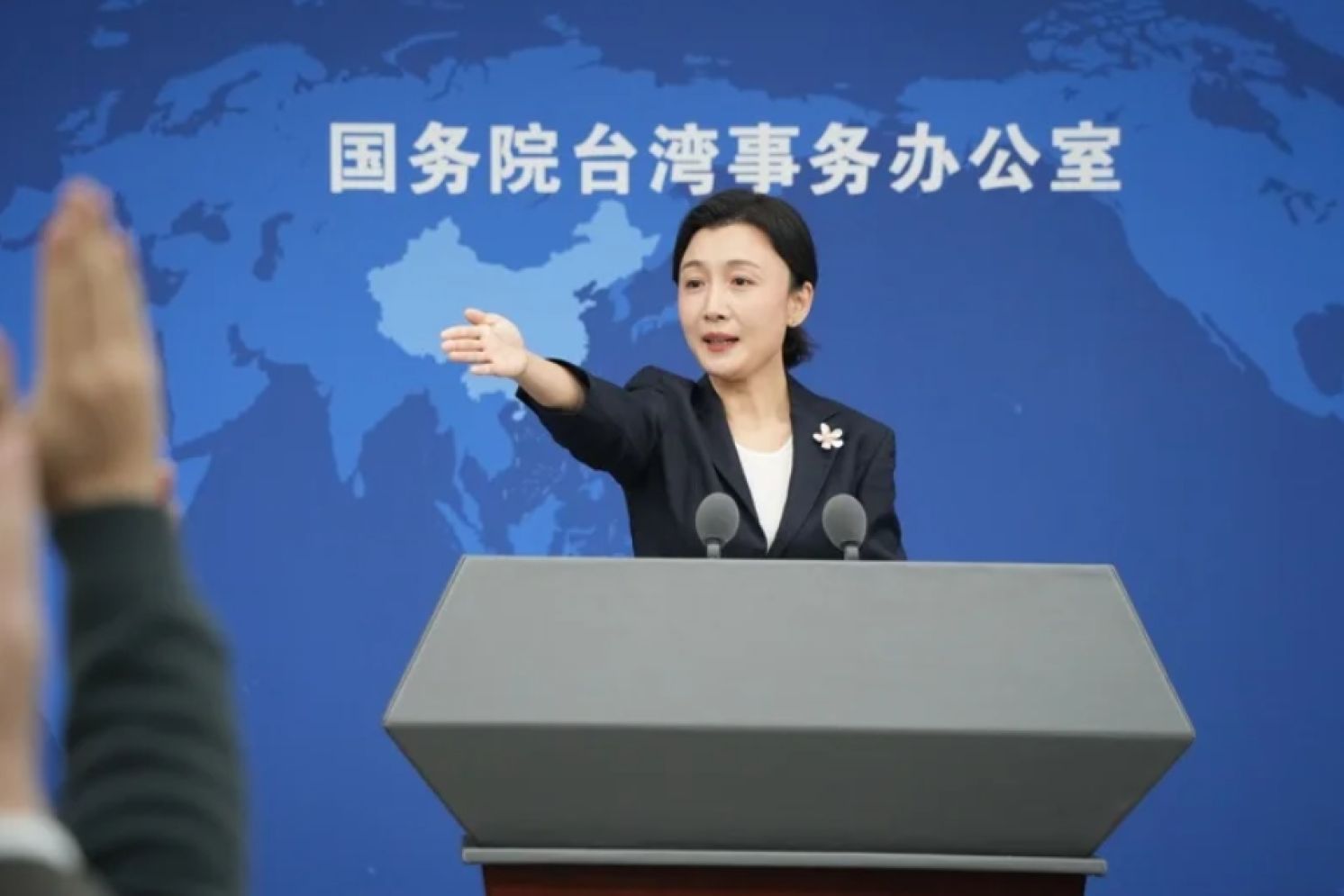
Lai Administration's Efforts to De-couple from China Chances Slim
United Daily News Commentary, November 5, 2025
The Taiwan Affairs Office (TAO) of mainland China’s State Council introduced on November 5 a new spokesperson—its Hong Kong and Macao Affairs Director, Zhang Han. This follows last week’s appointment of Economic Affairs Director Peng Qing’en as a spokesperson, bringing the total number of TAO spokespersons to four—an unprecedented figure that even surpasses the mainland’s Ministry of Foreign Affairs, which holds press conferences five days a week.
This development is not merely because the TAO has increased the frequency of its regular press conferences from twice a month to once a week, requiring more manpower. Rather, it reflects Beijing’s effort to strengthen its dialogue with Taiwanese society through an expanded spokesperson system, allowing it to respond promptly to any sudden developments in cross-strait relations.
This adjustment in the TAO’s spokesperson structure is likely linked to President Lai Ching-te’s persistent efforts to sever social and communication ties across the Taiwan Strait, attempting to turn the two sides into insulated entities with no contact or interaction.
In other words, the Lai administration has been actively pursuing a decoupling policy between the two sides, while Beijing is working hard to couple or reconnect them in order to offset President Lai’s efforts and prevent the cross-strait relationship from drifting into complete disengagement.
The TAO’s approach, however, is to bypass the Lai administration entirely by using today’s fast and convenient internet tools to directly engage and communicate with Taiwanese society at the grassroots level.
A recent example is mainland China’s National Immigration Administration, which announced on November 3 that starting November 20, it will expand the number of ports eligible for on-arrival Taiwan Compatriot Permits from 58 to 100.
A closer look at the 42 new ports shows that they include remote frontier cities—Kashgar on the Pamir Plateau in China’s far west; Khorgos at the foot of the Tianshan Mountains near Kazakhstan; Fuyuan, Suifenhe, Hunchun, and Dandong near the Russian and North Korean borders in the northeast; and Erenhot on the Mongolian frontier—all are on the list of areas being opened up.
This means that Taiwanese travelers can fly directly to these locations to obtain Taiwan Compatriot Permits, freely explore nearby border areas, or even cross into Kyrgyzstan, Kazakhstan, Russia, North Korea, or Mongolia—something that Beijing clearly does not mind.
At the press conference today, Zhang highlighted this policy, stating that the mainland aims to help “compatriots on both sides of the Strait grow closer and more affectionate.” Even without a Taiwan Compatriot Permit, Taiwanese can embark on “spur-of-the-moment trips” by flying or sailing directly to the mainland and obtaining a single-entry permit within 30 minutes.
Meanwhile, Taiwan is holding inter-ministerial meetings to discuss banning Taobao and Pinduoduo—suspected sources of the current African swine fever threat—and is reportedly pushing to have both e-commerce platforms “removed if not locally based.”
While it remains unclear whether the Lai administration is determined to cut off Taobao and Pinduoduo from the Taiwan market, given that Taiwan has no regulatory framework allowing mainland Chinese e-commerce to operate locally, this “no local presence, no listing” directive appears intended to block their supply routes to Taiwan and thereby reduce the public’s access to Chinese goods.
If that is the outcome, then the Lai administration’s approach would be misguided. Taking down the official apps of Taobao and Pinduoduo will not stop consumers from using their international counterparts—AliExpress and Temu. Should Taiwan attempt to ban even these overseas platforms, it would be a major embarrassment. And even if banned, online access can easily find workarounds. When President Donald Trump of the United States sought to remove TikTok, Americans simply migrated to Xiaohongshu and Lemon8, and in the end, it was the Trump administration that backed down.
Fighting against economic behavior is like fighting against water: at first, it may seem possible to block a stream, but eventually, the current will always find its way forward.
Taiwan enjoys a massive trade surplus from exports to mainland China; it cannot expect to maintain these export channels while unilaterally cutting off imports of mainland goods. African swine fever is an issue of Taiwan’s own inspection and enforcement mechanisms—it has nothing to do with which e-commerce platform sells the goods. There is no need for such overreaction.
As for the tug-of-war between the Lai administration’s decoupling policy and the TAO’s reconnection efforts, Beijing’s growing cultural soft power and its ever-expanding global manufacturing share suggest that the Lai administration’s bid to decouple from China is unlikely to succeed.